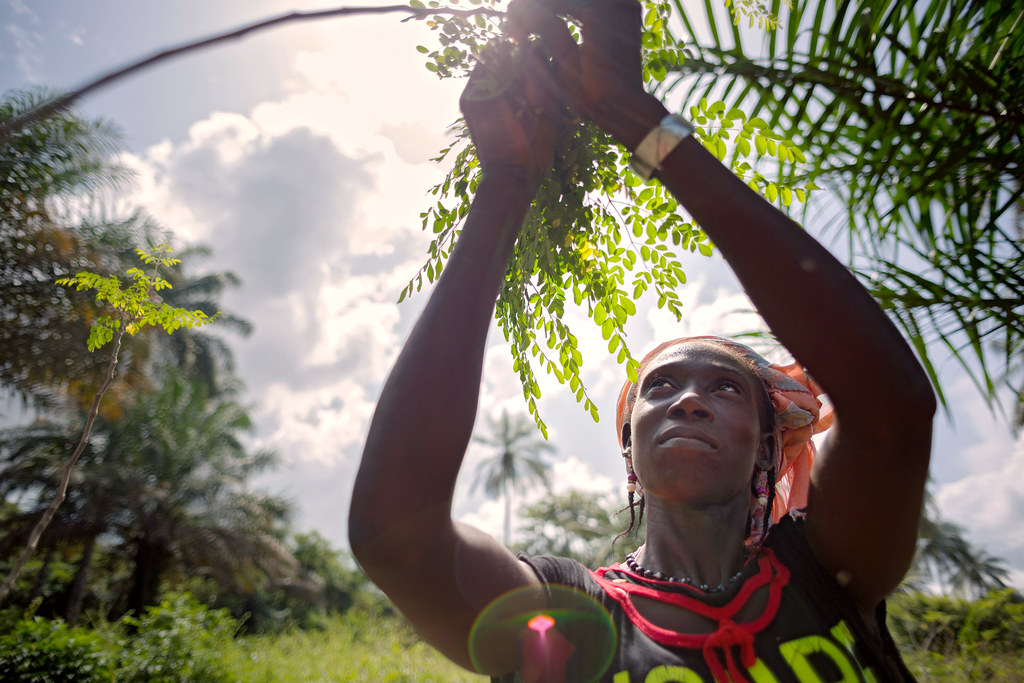
Climate change remains Africa’s biggest “existential challenge” and we are already experiencing its effects. Cyclone Batsirai displaced 150,000 people in Madagascar this February, compounding the effects of the country’s worst drought in 40 years.
The “Durban Rain Bomb” in April caused flooding across KwaZulu-Natal in South Africa, destroying thousands of homes. Dust storms are wreaking havoc in the Sahel region. And millions are at risk of starvation in the Horn of Africa following four years of failed rains. Climate breakdown has also undermined food security for hundreds of millions of people and fuelled violent conflict.
Challenges related to climate change are being faced around the world, of course, including in the form of unprecedented heatwaves, floods, and droughts. But in the Global South, these effects are being experienced amid low capacity for climate adaptation.
In Africa, the large-scale plunder of natural resources to meet the overconsumption of elites has resulted in increased poverty. Industrial agriculture, forestry, and fishing have pushed ecological systems to the brink of destruction and undermined local development.
The upcoming COP27 has added focus on Africa’s climate vulnerability as well as the Global North’s non-commitment on its UNFCCC pledges. The “just transition” narrative is finally being recognised by governments after years of community struggles.
At the same time, however, we are experiencing a stronger push towards the entrenchment of dirty energy colonialism. Fossil fuel operations are expanding in South Africa; oil and gas is being explored in Zimbabwe and Ivory Coast; offshore reserves are being further exploited in Nigeria and Mozambique to mention just a few examples.
Furthermore, the war in Ukraine has recently prompted a new push for extractivism. Countries in the Global North are encouraging investment in fossil fuels in Africa – where $400 billion worth of new natural gas projects are underway – while simultaneously giving lip service to the idea of phasing down oil and gas.
Growing evidence shows that this exploitation will not bring long-term benefits to the continent. The only winners will be rich countries and transnational corporations looking to make huge profits. These oil and gas companies are planning 195 gigantic oil projects around the world that will produce 646 gigatons of borderless CO2 emissions that will impact us all and drive us past internationally agreed temperature limits.
While these “carbon bombs” are being pursued, countries and corporations in the Global North are also pushing false solutions such as carbon markets, carbon offsetting, the idea of “net zero”, and geoengineering.
Against this backdrop, we are calling on our African Delegation to push for the following outcomes at at COP27, on 6-18 November:
Climate financing should be increased to meet the set targets. It should be in the form of grants and without debt. It should be targeted towards the most vulnerable communities at the frontline of the climate crisis in Africa including rural women food producers.
Clear commitments should be made on loss and damage reparations. We must ensure the historical polluter pays. Large polluters owe a huge climate debt that must be honoured and paid to oppressed indigenous and other communities in Africa and the Global South according to how the climate crisis is impacting them.
The Global North must fairly and justly compensate for the loss and damage experienced by those who are most vulnerable and least responsible for the destruction of their environments. There is a need to move from an open-ended negotiating platform on loss and damage to an emergency facility with accountability frameworks.
Peasant agroecology and other sustainable food production and distribution models grounded in food sovereignty should be recognised, respected and supported as alternatives to the industrialist food system. Governments should increase national budget allocations to agriculture and protect local seeds and seed systems, guided by the principle of Free, Prior and Informed (and Continuous) Consent by small-scale food producers and consumers.
Rich countries must end their climate hypocrisy, and false solutions should be abandoned, including “net zero”, failed emissions trading and offsetting mechanisms, and techno fixes such as geo-engineering and genetic modification. Nuclear energy, big dams, and “Green” and “Blue” Economy models must be called out as scams and abolished.
Governments and financiers must commit to leave fossil fuels in the ground and stop all new exploration. Our governments should redirect existing reserves to phasing out fossil fuels and commit to a just energy transition.
We must focus on transforming our energy system. Ideas like energy sufficiency for all, energy sovereignty, energy democracy, energy as a common good, 100% renewable energy for all, and community-owned renewable energy can help us urgently transition to a way of living that is just and in harmony with nature.
The Global North must stop its waste colonialism of dumping waste in the Global South. All parties must commit to exclude waste-to-energy incineration from climate plans. Governments must stop petrochemical expansion, reduce plastic production, and phase-out single-use plastic and packaging. They must invest waste reduction measures and zero waste circular economy systems. Polluting companies should be made accountable for plastic pollution and their enormous contribution to global warming in line with the “producer pays” principle.
In line with the UN declarations on the Rights of Peasants and Indigenous People’s Rights, COP27 must respect and uphold the rights of people in the face of climate injustice. National legal frameworks should be revised to reflect this and strengthen women’s rights and protection from violence.
We stand in solidarity with Cabo Delgado in Mozambique, Okavango in Namibia, and all communities and territories affected by conflicts and resource wars, as well as all those affected by the East African Crude Oil Pipeline (EACOP) and the West African Gas Pipeline (WAGP).
Actions that perpetuate injustice, further exploitation of natural resources, and displace communities in the false name of the climate must make way for an equitable and just transition in energy, agriculture and mining.
A new Africa is possible. We need climate justice now.
This is an abridged version of the ACJC’s full Africa People’s Counter COP27 Declaration.











